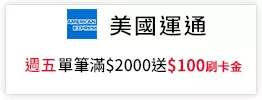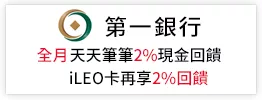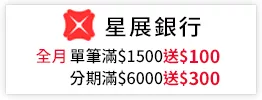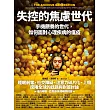自序
Journey Through the White Terror tells the story of my father Paul Sun, who, like many others, was imprisoned more than 60 years ago during the “White Terror,” the decade following the withdrawal of Chiang Kai-shek’s Nationalist government from Mainland China to Taiwan in mid-December 1949. During this time, the Nationalist government implemented a policy of “better to kill ten thousand by mistake than to set one free by oversight,” and as a result, many innocent civilians such as my father became victims of ferocious searches and persecutions. At the time of my father’s arrest, I was not quite six years old; when he returned home, I was almost sixteen. Having witnessed the injustice of my father’s imprisonment and the freedom my family later enjoyed in America, I felt compelled to write this story. I have included in the book reflections on my father’s imprisonment and absence during my childhood, as well as accounts of the experience of my other family members and friends. The book concludes with thoughts on my life in the U.S.
But my book is not accusation literature. Neither is it literature of the wounded. On the contrary, this is a book about soul-searching and the healing of a childhood trauma. As I stand at today’s high point and recall the past, I find that I have learned a great deal; I had always thought that the hardships encountered in my youth were a deficiency in my life, but now I discover that they were a spiritual asset. I am grateful for those difficult early life experiences, for they allowed me to acquire maturity quickly while growing up, and allowed me to find a complete self amid shortcomings.
Thus, this book is also about bidding farewell to the White Terror. Although the chapters and passages written in my memoir often relate to the inhumanity of the White Terror, the foundation of the book rests on sketches of real-life heroes in the modern world. Those heroes are often nothing other than modest mentors whose talent and generosity helped us survive the difficult times. It is about aunts and uncles and friends whose contributions to the lives of our family will always be treasured by us.
Here, you will find the story of a pedicab driver who made it possible for a political prisoner to be briefly reunited with his family. You will read how that same driver’s act of generosity—which took place in Taiwan—was returned as a favor to the benefit of another pedicab driver after the lengthy span of fifty years on the mainland, in Beijing. And you will find the story of an unassuming elementary schoolteacher in Taiwan who gave me my earliest lessons in Chinese philosophy, which would later become one of the subjects that I teach in the U.S. Among the book’s most significant stories are those of important literary figures who were family friends. One of them, Chang Wo-chun, assisted our family during a risky journey out of the mainland in 1946. Then there is the story of my uncle Chen Pen-chiang and the novelist Lu Heruo, whose firm adherence to the ideals of socialism led to one of the most significant political uprisings of the post-1949 era in Taiwan. Finally, but far from least among them, there is the story of my parents, who had learned to hear the voice of God. B9Their faith helped sustain them through the difficult journey of the White Terror.
The White Terror in Taiwan generally refers to the period of martial law that began in 1949. But in fact, as early as 1946, people in Taiwan could already sense that catastrophic times could erupt at any moment. Our family must have been among the first Mainlanders to go to Taiwan, as we left China in the spring of 1946. China was still ruled by Chiang Kaishek’s Kuomintang (KMT). A year before that, World War II had just ended, marking a special year of victory for the Chinese, as Japan, the common enemy of all of China, was finally defeated. With Japan’s surrender, Taiwan was restored to Chinese rule after fifty years of Japanese occupation, and thousands of Japanese were forced to leave Taiwan. At the time, Taiwan’s citizens were hoping that under the new rule of the Chinese Nationalists, things would improve on the Taiwan island. Meanwhile, Taiwan suddenly became a new land of opportunity, and many Mainlanders went to Taiwan to assume new positions. The primary reason my parents decided to go to Taiwan was to look for good job opportunities. Because my mother originally came from Taiwan, the trip to Taiwan became even more desirable.
Unfortunately, the year after our arrival in Taiwan, the February 28th Incident, also known as the 228 Massacre, suddenly erupted. In fact the February 28th Incident in 1947 already marked the beginning of the White Terror Period. According to reliable estimates, thousands of Taiwanese and Mainlanders were either imprisoned or executed during those years. My father was imprisoned from 1950 to 1960. During those ten years, my mother became a sewing teacher to support her three children. Without my mother, my family would not have survived the White Terror years. Even when my father was released from the prison in 1960, no one dared to hire him until finally a courageous high school principal appointed him as an English teacher.
Indeed, our journey has been difficult. It’s true that more than sixty years ago, almost all Mainlanders who went from China to Taiwan experienced the tragedy of being cut off from their families on separate lands. But unlike most other people, our family’s tragedy was twofold. At the same time our mainland relatives were being branded Rightists and put through unending torture in China, my father, a mainland Chinese, was falsely labeled a leftist criminal in Taiwan. All the while, of course, our relatives on the mainland were completely unaware of everything we underwent in Taiwan. This is indeed a great irony in modern history. An irony such as this is a tragedy of the times; it is entirely the creation of an unfortunate political situation.
In the meantime, martial law was lifted in 1987, and Taiwan has since become a democratic society. It is possible for me now to view the White Terror episode in a new perspective. After all, the Ma-chang-ting area in Taipei, which used to b+B11e the place for executing political dissidents during the White Terror era, has now become the Memorial Park in remembrance of the victims during the 1950s.
Indeed, the story of Taiwan is one of great change. When hearing about my White Terror memoir, my Yale colleague Beatrice Bartlett, who had been teaching a Taiwan history course for forty years, commented: “It is certainly a remarkable change—isn’t it—that such books can now be written and published on Taiwan. When I lived there, saying the words ‘erh-erh-pa’ [2-28 Incident] out loud in public would get you stared at—or worse!”
Needless to say, in writing this book I have accumulated many debts of gratitude over the years, far beyond those I have already mentioned above. First of all, my thanks go to my father Paul Sun (1919-2007) and my mother Yu-chen Chen Sun (1922-1997) for the love and encouragement they gave me throughout the difficult years. I am also deeply grateful to my husband C.C. Chang. His many years of enthusiasm and imagination helped me bid farewell to the shadows of the past. I would also like to thank my brothers K.C. and Michael for sharing their experience with me. In addition, I have learned from talking to many people: David Der-wei Wang, Ke Ching-ming, Yu-kung Kao, Chin-shing Huang, Ayling Wang, Sher-shiueh Li, Chi-hsiang Lee, Liao Chih-feng, Fan Ming-ju, Chen-main Wang, Jianmei Liu, Jeongsoo Shin, Michael Holquist, Elise Snyder, Richard H. Brodhead, Stanley Weinstein, Edwin McClellan, Harold Bloom, John Treat, Jing Tsu, John F. Setaro, Haun Saussy, Olga Lomova, Cecile Cohen, Reva Alavian Pollack, and others. I am grateful to all of them for their friendship and inspiring conversations over the years.
In particular, I wish to express my appreciation to the late professor of Chinese history Frederick W. Mote, who read the original Chinese edition of this book with the utmost care and urged me to publish the work again in “its English language rebirth,” for he said “it deserves to reach a wider audience” in this way. It was largely due to his inspiration that I was able to add new historical background information to the English edition. I am also grateful to Leslie Wharton, my long-time friend from the Princeton years during the 1970s, who urged me to publish a revised and enlarged edition for the new global readership.
I am indebted to Matthew Towns for his invaluable help during the process of translation. I also want to give thanks to Jessica Moyer for helping me translate one of my Chinese essays (“My Father’s Hands”), and to my research assistant Victoria Wu who made crucial contributions to the entire process of revision, including translating David Wang’s foreword for this new edition.
The Council on East Asian Studies at Yale University generously supported my research on this project, and subsequently provided subsidy grants to help the publication of this book. I am grateful to Daniel Botsman, Chair of the Council, and Abbey Newman, Melissa Jungeblut,and Amy Greenberg for their continuous support.
For their unfailing support, I also owe a debt of gratitude to Hsiang Jieh, Director of the National Taiwan University Press, and to the editors Tina Pan and Harry Tsai.
K.S.C.
Yale University
January 2013



 天天爆殺
天天爆殺  今日66折
今日66折 



















































































 博客來
博客來 博客來
博客來 博客來
博客來 博客來
博客來 博客來
博客來